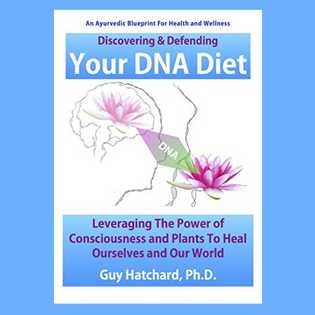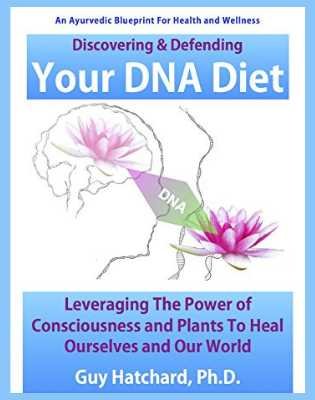Associate Minister for Agriculture Mark Patterson, has announced that NZ First will oppose the passage of the Gene Technology Bill in its current form because the party is opposed to the release of genetically modified organisms into the environment, since their subsequent spread cannot be contained. Patterson told Newsroom:
“The stuff that happens in containment in a lab: we don’t really have a problem with that. That’s fine. [Our concern] is in terms of general release into the environment”.
Any celebration of this news is premature, because NZ First has announced its intention to negotiate with its coalition partners in order to reach a compromise on the terms of the Bill which apparently will only extend at the most to a continuation of the ban on the release of GM crops in New Zealand for the time being, but not to any control of exotic and highly risky genetic experimentation in labs and the rubber stamping of novel medical gene technology experiments.
Patterson describes the issue of gene modification as “hellishly complex”. He is right about that, but completely off target when it comes to the safety of gene modification inside a contained lab. There are overwhelming reasons to reject deregulated genetic modification in New Zealand laboratories and the automatic approval of gene tech medicine in New Zealand if it has been used overseas as the Bill envisions. First among these reasons is the occurrence of 30 million global pandemic excess deaths.
Given the extreme risk, which should be obvious to everyone but is somehow being glossed over by those with vested interests, the NZ First party should now brush up on their research into the ‘hellishly complex’ issue of genetic modification as it pertains to what happens in contained laboratories. In fact, secure lab containment is a myth, accidents are not rare, they are common. A 2015 USA Today Investigation uncovered hundreds of errors in supposedly ‘contained’ US laboratories, reporting:
“Vials of bioterror bacteria have gone missing. Lab mice infected with deadly viruses have escaped, and wild rodents have been found making nests with research waste. Cattle infected in a university’s vaccine experiments were repeatedly sent to slaughter and their meat sold for human consumption.”
A 2022 study of the Prevalence of Accident Occurrence Among Scientific Laboratory Workers found:
“Among 220 participants recruited in our study, 99 participants (45.0%) have had accidents during their lab works. 59.6% have been exposed once, 32.3% between two and four times, only 1.0% between four and six times, and 7.1% more than six times.”
If NZ First still naively thinks that the accident at the Wuhan lab was a one off that can be ignored or that gain of function research is no longer taking place or will not happen here, they need to think again. Biotechnology researchers and regulators have proved themselves consistently incapable of setting limits or acknowledging inherent risks, even recently. For example a 2022 experiment undertaken by Boston University recorded the success (???) of their efforts to combine the mild COVID-19 Omicron variant with more deadly strains circulating earlier in the pandemic. The strain they created killed 80% of mice, whereas omicron killed none.
NZ First might also have to consider the reliability or otherwise of the advice they have been receiving from health officials, lobbyists and so-called experts. Recent research has placed many of these positions in doubt.
For example a paper published in the Journal of Precision Biosciences entitled “Unintended Genetic Consequences of mRNA Vaccines: Evaluating Risks of Transcriptional Disruption, HLA Alteration, and Genomic Integration concludes:
“Contrary to initial claims that mRNA degrades harmlessly, emerging evidence suggests that synthetic sequences may embed within the human exome, disrupting essential genetic processes. The primary concern lies in the potential scrambling of the Human Leukocyte Antigen (HLA) gene complex, which could trigger autoimmune disorders and long-term genetic instability.”
Anyone who pretends such risks are minimal or can be ignored is going against the trend of scientific evaluation and discussions. Unfortunately some in positions of authority are digging in their heels and refusing to acknowledge the known risks or inform the public.
An exclusive investigation undertaken by the Public Health Reform Alliance reveals emails which show that CDC (US Centre for Disease Control) officials have been discussing among themselves how to obfuscate the facts about COVID-19 vaccines’ lack of efficacy. They have sought to keep discussion out of the public domain. Apparently the CDC spent $911 million on a COVID-19 vaccine promotion campaign that misrepresented the effectiveness of masking, vaccines and boosters — and “consistently overstated” the risk of the virus to children. Internal emails show that CDC officials sought to ignore and hide legitimate COVID-19 vaccine safety concerns, instead deciding to reassure the public of safety, without actually evaluating or investigating the concerns.
Despite the obvious risks, Shane Jones MP expects that NZ First will reach a compromise on the Gene Technology Bill to ensure the stability of the coalition, saying “To do a great right, sometimes you have to do a little wrong”. Whatever ‘little wrong’ he was talking about, it certainly cannot be applied to COVID-19.
According to the Harvard School of Public Health, COVID-19 has now become endemic. In other words, it is with us in one form or another for good. This has multiplied the number of illnesses the public can contract, especially during the winter season. An article in Stuff newspaper headlines “Winter illnesses drive ‘mass casualty situation’ feeling at hospital ED, doctors say“. It reports that hospital ED departments are currently overwhelmed as if a mass casualty event has taken place, actually it has and we have to ask why. St John Ambulance service has recorded its busiest month ever with over 50,000 call outs in August. Incidence of breathing difficulties were up 33% on the 12 month average. The surge in illness is being blamed on the combined toxic effects of flu, RSV and COVID-19, but does the cause of this malaise in public health run deeper than merely concurrent illnesses?
Multiple recent studies indicate that Covid escaped from the lab in Wuhan following gain of function research. Therefore it is important to realise that the Wuhan research was designed to genetically engineer a coronavirus strain found in bats into a virulent disease that could infect humans. At the Wuhan lab, biotechnologists were able to incorporate novel genetic sequences that efficiently locked into human receptors. These mechanisms are no doubt at the root of the infectivity and persistence of COVID-19. Long COVID-19 incidence provides an example of how such engineered characteristics can create long lasting reservoirs of disease in the human body.
What has not been made clear to the general public is the mobility of such genetic sequences. The human gut is a system where microorganisms can exchange genetic information, a phenomenon known as Horizontal Gene Transfer. A 2017 paper entitled “Potential Effects of Horizontal Gene Exchange in the Human Gut” reports
“The human gut conditions, with stable temperature, continuous food supply, constant physicochemical conditions, extremely high concentration of microbial cells and phages, and plenty of opportunities for conjugation on the surfaces of food particles and host tissues, represent one of the most favourable ecological niches for horizontal gene exchange.”
The paper discusses potential effects of these exchanges on human health in general and autoimmune diseases in particular. In the light of these findings it doesn’t take a rocket scientist to realise that a simultaneous infection with either flu or RSV along with COVID-19 may help more virulent and persistent winter disease strains to emerge with novel engineered characteristics. This is possibly what is happening in New Zealand right now.
The effects are not limited to public health, the vitality of the economy is also under threat which is not a minor concern. The Herald reports that almost a quarter of staff at Northland schools were reporting sick in August forcing schools to roster senior students to teach. 1News reports 2025 research that concludes ill health is costing New Zealand businesses $46 billion annually.
So what should NZ First actually do about the Gene Technology Bill?
The risks posed by biotechnology experimentation are not just large, they are unprecedented and inherently unpredictable. In 2017, Jennifer Doudna, the Nobel prize winning inventor of CRISPR gene editing, writing in her book A Crack in Creation, cautioned:
“The power to control our species’ genetic future is awesome and terrifying. Deciding how to handle it may be the biggest challenge we have ever faced.”
The current formulation of the Gene Technology Bill fails to address Doudna’s warning. It offers a blank cheque to a regulator to approve experimentation in whatever ways they might see fit. Moreover the Bill grants exemption from criminal liability to those involved. Our World in Data estimates there have been 30 million excess deaths worldwide since the beginning of 2020, the largest incidence of mass deaths from disease since the advent of modern medicine and sanitation. The deaths are apparently the direct result of experimental gene manipulation. It seems excessively strange, ill considered and inappropriate to grant exemptions from liability in advance of further gene experiments.
The issue here is the paramount need to protect public health. The safety of certain forms of biotechnology experimentation and gene editing is not proven as the Gene Technology Bill falsely presupposes, rather the obvious conclusion to be drawn from pandemic outcomes is the opposite. Given that both COVID-19 and COVID-19 vaccines came out of biotech labs, any balance of culpability between the two is immaterial. The Gene Technology Bill is a step too far and should be rejected. There are many scientifically valid reasons to take this very seriously indeed. See our Substack article The Long Read: Twenty Reasons to Completely Reject Biotechnology Experimentation for more information.
Any attempt to support the Bill in its present form or a compromise version which effectively deregulates genetic editing in laboratories will be a opening into an entirely uncertain and risky future. When Pandora risked opening her box, all the worlds evils including sickness, sorrow, death and vice escaped into the world. According to the myth, humanity was left with hope. The COVID-19 pandemic experience should be enough to let us know that hope is not enough. Write to your MP and ask that they reject the Gene Technology Bill.






